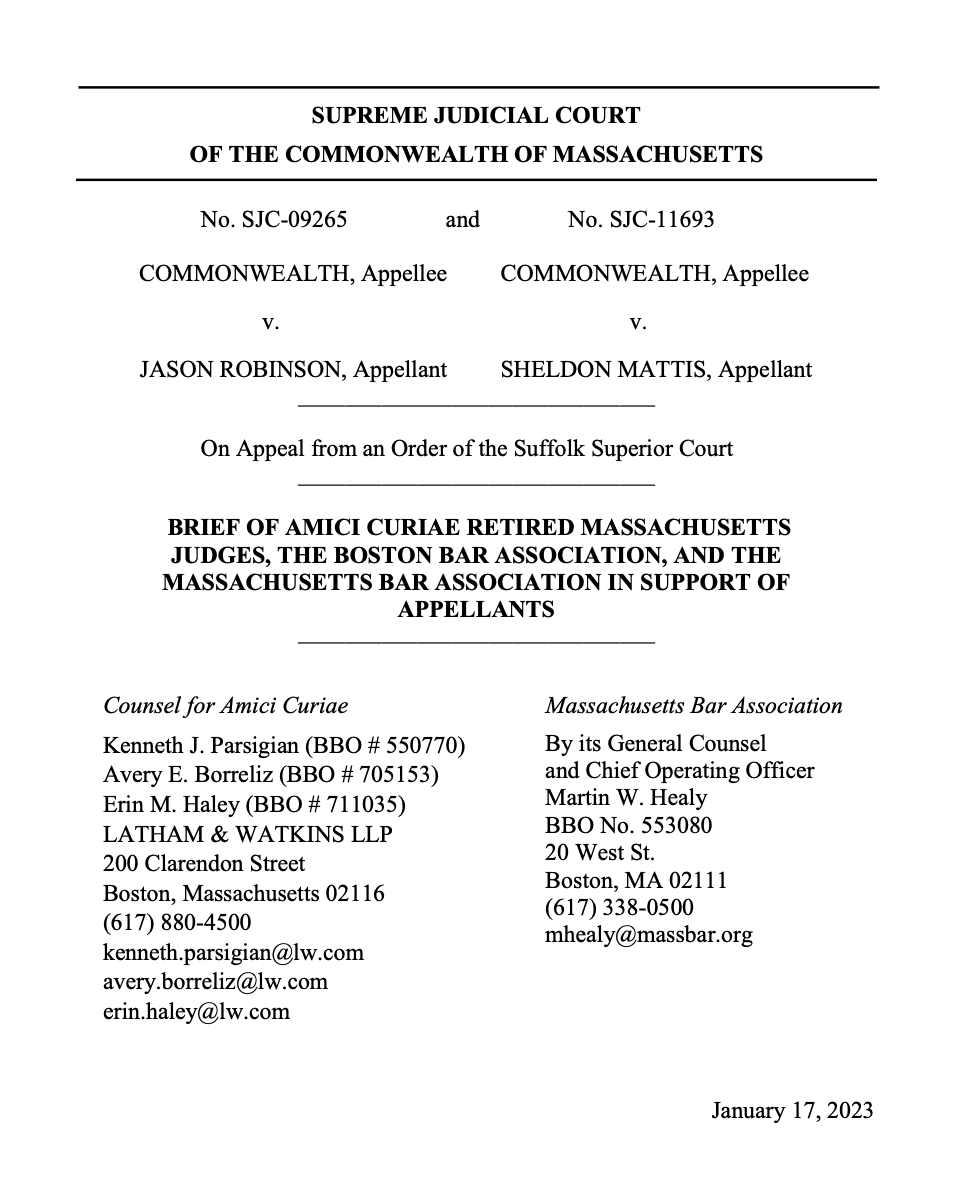
Summary of Argument
This Court asks whether it should extend its holding in Diatchenko v. District Attorney for the Suffolk Dist., 466 Mass. 655 (2013) and hold that the imposition of a mandatory sentence of life without parole for those convicted of first degree murder, who were eighteen through twenty years old at the time of the crime, violates art. 26 of the Massachusetts Declaration of Rights. Though the Court asks whether a mandatory sentence of life without parole violates art. 26, Diatchenko held that any imposition of life without parole—mandatory or not—constitutes cruel or unusual punishment for juvenile offenders.
Amici set forth two arguments based on their collective experience interacting with late adolescent offenders on the bench and in practice as to why this Court’s holding in Diatchenko should be fully extended and eliminate all life without parole sentences for late adolescents. First, in the decade since Diatchenko was decided, developments in neuroscience have shown that the scientific groundwork on which Diatchenko relied applies equally to late adolescents aged eighteen to twenty. As the growing body of scientific research shows, and as Superior Court Judge Ullmann found on remand, late adolescents do not magically transform in the two or three years after turning eighteen. See 23–25, infra. On the contrary, late adolescent offenders share the same attributes as juvenile offenders for which this Court held life without parole categorically inappropriate: late adolescents’ brain development renders them less culpable for their offenses and much more able to rehabilitate and desist from crime than adult offenders. See 23–28, infra.
Second, amici argue this Court should extend Diatchenko in order to avoid sentencing schemes that would promote inconsistent and discrepant sentences for late adolescents. Diatchenko properly rejected a system that would call on sentencing judges to conduct sentencing hearings—like those required under Miller v. Alabama, 567 U.S. 460 (2012)—to determine whether life without parole is appropriate for any late adolescents convicted of first degree murder. Such hearings invite inconsistencies, are influenced by unconscious bias, and ask judges to make impossible predictions about whether young offenders are “permanently incorrigible.” Respectfully, amici implore this Court not to burden sentencing judges with the impossible task of determining permanent incorrigibility for offenders who are, neurologically, the equivalent to juvenile offenders. See 29–40, infra. Amici’s cumulative experience both on the bench and in practice confirms that the determination as to whether a late adolescent offender can be rehabilitated is appropriately made by the parole board after the opportunity for rehabilitation. See 40–45, infra. For the reasons advanced below, amici respectfully request this Court extend its own reasoning from Diatchenko and hold that any life without parole sentence for late adolescents—not just mandatory sentences—violates art. 26.